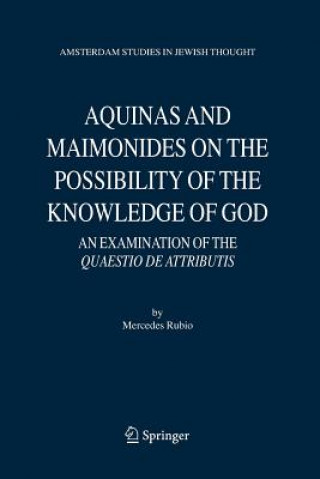
Kód: 01975375
Aquinas and Maimonides on the Possibility of the Knowledge of God
Autor Mercedes Rubio
Thomas Aquinas wrote a text later known as Quaestio de attributis and ordered it inserted in a precise location of his Commentary on the Sentences of Peter Lombard more than a decade after composing this work. Aquinas assigned exc ... celý popis
- Jazyk:
 Angličtina
Angličtina - Vazba: Brožovaná
- Počet stran: 326
Nakladatelství: Springer, 2010
- Více informací o knize

Mohlo by se vám také líbit
-

Now - The Physics of Time
788 Kč -

Aphrodite's Island
743 Kč -

Lift and See: Animals
225 Kč -

Primer Plano
128 Kč -

Aussenpolitik der deutschen Lander im Kaiserreich
1378 Kč -

Farbatlas Rebsorten
745 Kč -

Bernard Bolzano Gesamtausgabe / Reihe II: Nachlaß. A. Nachgelassene Schriften. Band 8: Größenlehre II: Reine Zahlenlehre
7265 Kč
Darujte tuto knihu ještě dnes
- Objednejte knihu a zvolte Zaslat jako dárek.
- Obratem obdržíte darovací poukaz na knihu, který můžete ihned předat obdarovanému.
- Knihu zašleme na adresu obdarovaného, o nic se nestaráte.
Více informací o knize Aquinas and Maimonides on the Possibility of the Knowledge of God
Nákupem získáte 654 bodů
 Anotace knihy
Anotace knihy
Thomas Aquinas wrote a text later known as Quaestio de attributis and ordered it inserted in a precise location of his Commentary on the Sentences of Peter Lombard more than a decade after composing this work. Aquinas assigned exceptional importance to this text, in which he confronts the debate on the issue of the divine attributes that swept the most important centres of learning in 13th Century Europe and examines the answers given to the problem by the representatives of the four mainstream schools of his time: the Greek mystic Dionysius Areopagita, the Latin Saint Anselm of Canterbury, the Jewish rabbi Moses Maimonides and the Muslim philosopher Ibn Sina. This in-depth study of Thomas Aquinas Quaestio de attributis (In I Sent., d. 2, q. 1, a. 3) binds together the findings of previous research on the unique history of this text by reconstructing the historical circumstances surrounding its composition, shows that the Quaestio contains Aquinas final answer to the dispute on the divine attributes, and thoroughly examines his interpretation of Maimonides position on the issue of the knowledge of God by analysing this and other texts related to it chronologically and doctrinally. The examination of the Quaestio reveals the background of Thomas Aquinas renewed interest in Maimonides position on the issue and brings to light elements of Aquinas interpretation that are absent from his earlier references to Maimonides. §Moreover, the chronological and doctrinal connection of the Quaestio de attributis to other Thomistic works with explicit references to Maimonides enables a reconstruction of his comprehensive approach to Maimonides teaching on the possibility and extent of the knowledge of God in the Guide of the Perplexed and highlights the place of Maimonides philosophical teachings in Thomas own thought in issues like "Being" as the proper name of God, the multiplicity of the divine names, the beatific vision in the afterlife, the causes that prevent the instruction of the multitude in divine matters and the role of faith and prophecy in the acquisition of the true knowledge of God in this life. The last chapter examines the reasons behind Aquinas silencing of Maimonides name when introducing his Five Ways for the knowledge of the existence of God, in spite of the evident relation between these and Maimonides Four Speculations. The study is completed with an extensive appendix that includes the text of the Quaestio de attributis with an English translation and the critical edition of several chapters of the 13th Century Latin translation of the Guide of the Perplexed known as Dux neutrorum.This in-depth study of Thomas Aquinas Quaestio de Attributis binds together the findings of previous research on the unique history of this text by reconstructing the historical circumstances surrounding its composition, shows that the Quaestio contains Aquinas final answer to the dispute on the divine attributes, and thoroughly examines his interpretation of Maimonides position on the issue of the knowledge of God by analysing this and other texts related to it chronologically and doctrinally.Thomas Aquinas wrote a text later known as Quaestio de attributis and ordered it inserted in a precise location of his Commentary on the Sentences of Peter Lombard more than a decade after composing this work. Aquinas assigned exceptional importance to this text, in which he confronts the debate on the issue of the divine attributes that swept the most important centres of learning in 13th Century Europe and examines the answers given to the problem by the representatives of the four mainstream schools of his time: the Greek mystic Dionysius Areopagita, the Latin Saint Anselm of Canterbury, the Jewish rabbi Moses Maimonides and the Muslim philosopher Ibn Sina. This in-depth study of Thomas Aquinas Quaestio de attributis (In I Sent., d. 2, q. 1, a. 3) binds together the findings of previous research on the unique history of this text by reconstructing the historical circumstances surrounding its composition, shows that the Quaestio contains Aquinas final answer to the dispute on the divine attributes, and thoroughly examines his interpretation of Maimonides position on the issue of the knowledge of God by analysing this and other texts related to it chronologically and doctrinally. The examination of the Quaestio reveals the background of Thomas Aquinas renewed interest in Maimonides position on the issue and brings to light elements of Aquinas interpretation that are absent from his earlier references to Maimonides. Moreover, the chronological and doctrinal connection of the Quaestio de attributis to other Thomistic works with explicit references to Maimonides enables a reconstruction of his comprehensive approach to Maimonides teaching on the possibility and extent of the knowledge of God in the Guide of the Perplexed and highlights the place of Maimonides philosophical teachings in Thomas own thought in issues like "Being" as the proper name of God, the multiplicity of the divine names, the beatific vision in the afterlife, the causes that prevent the instruction of the multitude in divine matters and the role of faith and prophecy in the acquisition of the true knowledge of God in this life. The last chapter examines the reasons behind Aquinas silencing of Maimonides name when introducing his Five Ways for the knowledge of the existence of God, in spite of the evident relation between these and Maimonides Four Speculations. The study is completed with an extensive appendix that includes the text of the Quaestio de attributis with an English translation and the critical edition of several chapters of the 13th Century Latin translation of the Guide of the Perplexed known as Dux neutrorum
 Parametry knihy
Parametry knihy
Zařazení knihy Knihy v angličtině Humanities Philosophy History of Western philosophy
6536 Kč
- Plný název: Aquinas and Maimonides on the Possibility of the Knowledge of God
- Podnázev: An Examination of The Quaestio de attributis
- Autor: Mercedes Rubio
- Jazyk:
 Angličtina
Angličtina - Vazba: Brožovaná
- Počet stran: 326
- EAN: 9789048171804
- ISBN: 9048171806
- ID: 01975375
- Nakladatelství: Springer
- Hmotnost: 530 g
- Rozměry: 240 × 160 × 19 mm
- Datum vydání: 25. November 2010
Oblíbené z jiného soudku
-

Meditations
279 Kč -

The Myth of Sisyphus
169 Kč -

Why I Am so Clever
91 Kč -

Meditations
285 Kč -

Republic
283 Kč -

Beyond Good and Evil
276 Kč -

Gay Science
322 Kč -

Aphorisms on Love and Hate
83 Kč -

Beyond Good & Evil
356 Kč -

Meditations on First Philosophy
276 Kč -
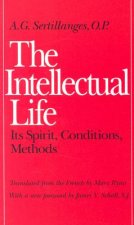
Intellectual Life
478 Kč -

Socrates' Defence
89 Kč -
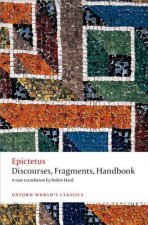
Discourses, Fragments, Handbook
323 Kč -

Ride the Tiger
518 Kč -

Thus Spoke Zarathustra
290 Kč -

Fear and Trembling
276 Kč -

Birth of Tragedy
89 Kč -
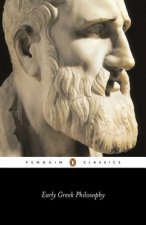
Early Greek Philosophy
356 Kč -

Groundwork for the Metaphysics of Morals
276 Kč -
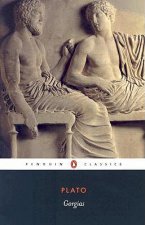
Gorgias
232 Kč -

Brief History of Analytic Philosophy - From Russell to Rawls
955 Kč -
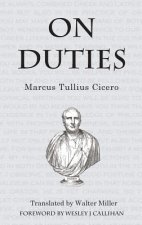
On Duties
335 Kč -

Discourses and Selected Writings
323 Kč -

Nicomachean Ethics
143 Kč -

Nausea
276 Kč -

Letters from a Stoic
276 Kč -

Meditations
502 Kč -

Simulacra and Simulation
416 Kč -

Phenomenology of Spirit
546 Kč -

Twilight of the Idols with The Antichrist and Ecce Homo
143 Kč -

On Liberty, Utilitarianism and Other Essays
223 Kč -

On the Suffering of the World
136 Kč -

Human Condition
514 Kč -

On the Shortness of Life
236 Kč -

Existentialism Is a Humanism
223 Kč -

Think
303 Kč -

Guide to the Good Life
457 Kč -
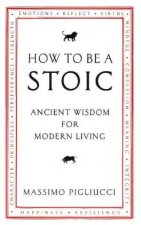
How To Be A Stoic
454 Kč -

The Symposium
235 Kč -

Human, All Too Human & Beyond Good and Evil
143 Kč -

At The Existentialist Cafe
277 Kč -

Undiscovered Self
708 Kč -

Passions of the Soul and Other Late Philosophical Writings
302 Kč -

The Trouble With Being Born
322 Kč -

Leviathan
143 Kč -
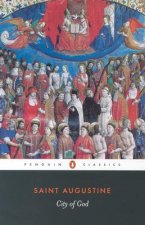
City of God
449 Kč -

Ecce Homo
249 Kč -
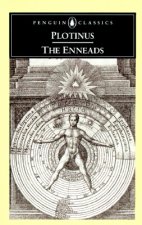
Enneads
410 Kč -

On Friendship
196 Kč
Osobní odběr Praha, Brno a 12903 dalších
Copyright ©2008-24 nejlevnejsi-knihy.cz Všechna práva vyhrazenaSoukromíCookies



 Vrácení do měsíce
Vrácení do měsíce 571 999 099 (8-15.30h)
571 999 099 (8-15.30h)